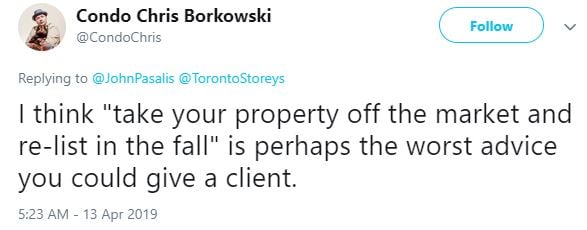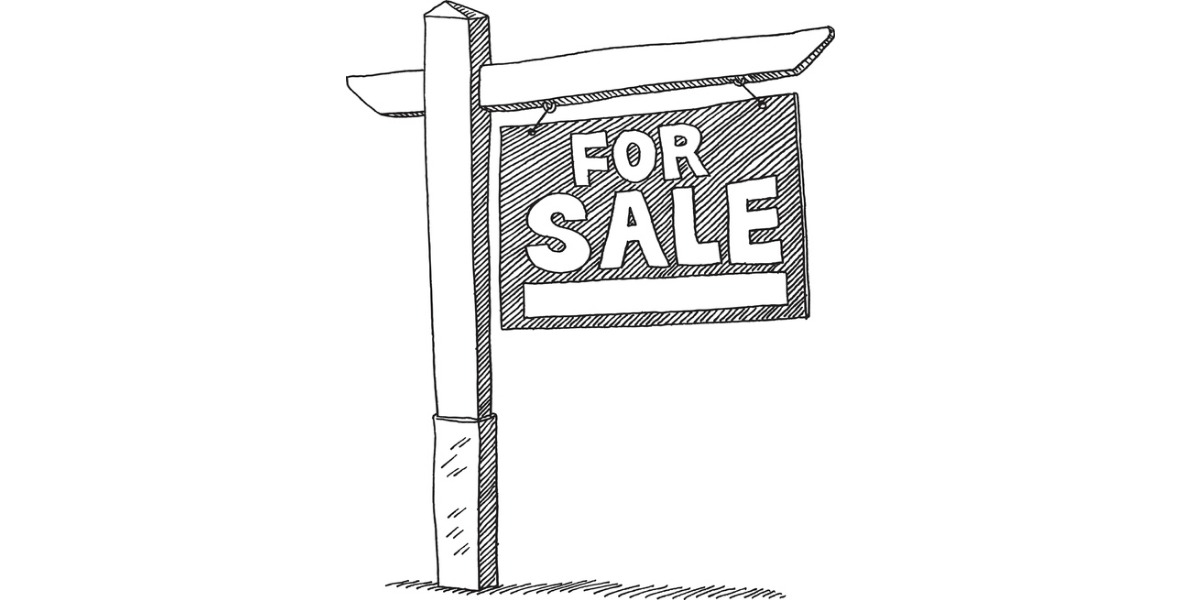What I advise home sellers to do when their home is not selling - and why it differs from the approach often taken by agents.
In an interview with Toronto Storeys last week I helped answer an important question for any seller – what can I do if my home isn’t selling?
90% of agents will tell you that when a home isn’t selling, you need to reduce the price. I disagree with taking this as the default option.
My advice was that sellers – and their agent – need to collect as much information as possible before deciding their next move.
- Is your house getting a lot of showings but no offers or are you not even getting many showings?
- What’s the feedback from the agents who showed the house – on both the price and condition of the house?
- What has sold and listed since you went on the market? How many offers did they get?
- Finally, what are the selling conditions like in your market. You can gauge this by calling other agents with homes for sale in your area. Are they also finding the market slow and harder than they expected to sell their houses as well?
Your next step should really be based on the result of all of the information you collected.
And while there are multiple different strategies a seller can take, I’ll address one strategy I suggested in the article which was taking your home off the market and re-listing it in the fall or spring market when things usually pick up, something that some agents are very against.

So under what circumstances would I suggest a seller take their home off the market and re-list it in a month or two?
Many buyers and sellers don’t realize that sometimes the housing market can go from very competitive in March to May to very slow in July and August. A home that would have received 5-10 offers if it was listed in April could be listed a few months later and not only get no offers on their offer night, but also sit on the market for a few weeks without a strong offer. These rapid slow downs happen most often in the late summer (July to August) and approaching Christmas (late November to December).
During these periods most of the homes listed for sale in the area typically have a very similar experience to yours – few showings and no great offers. That’s usually a good clue that the issue may not be your list price, but rather the current market conditions.
In a case like this, if you are not in a rush to sell and can wait to re-list when the market typically rebounds – either spring or fall – then it’s usually worth waiting. I say this because when you sell your home can make a 5-10% difference in your eventual sale price.
As an example, imagine your home is worth roughly $800K which means its value is somewhere between $780K-$820K. If you’re selling when there are a lot of buyers and competitive bidding wars then you’re more likely to sell for a bit over market value, let’s say $840K. If, on the other hand, you’re selling when the market is slower when there are a lot of homes for sale and not many buyers then you may end up selling for the lower end of market value of $780K. This is a simple example that highlights why waiting for a more competitive market might result in more money in your pocket.
Now, you might be wondering - why doesn’t everyone listed for sale during these slow periods take their home off the market and re-list in a month or two?
In most cases, a lot of these sellers have already bought a home and have no option but to sell even if it’s in a slower market where they have to settle for a price that is below what they would have received a few months earlier. The only sellers who can take this approach are sellers who aren’t under pressure to sell and can afford to wait a month or two for the market to pick up again.
I will add that when I have offered this advice to clients, I do qualify it by saying that I don’t know for a fact that the market will be more competitive in a month or two – just that it usually is. But if you’re not in a rush to sell, it’s at least worth waiting to see if you can sell in a more competitive market. Every time a client has taken this advice we were always fortunate enough to sell for more than the price we couldn’t even get a single offer on a couple of months earlier.
The reason most agents don’t suggest strategies like this is largely because it takes more time and costs agents more money. Agents are motivated to wrap up their sales as soon as possible which is why they invariably push their clients to just reduce their price instead.
In their book Freakonomics economist Steven Levitt and journalist Stephen Dubner cite Levitt’s research that found when agents are selling their own homes, their homes are on the market longer and get a higher price than their client’s homes.
Which suggests agents may not always do what they advise their clients to do.
Finally, this does not mean that reducing the price for your home isn’t a good – and maybe the best – next step to sell your home. It just means it shouldn’t be the default option.
I hope sellers begin asking their agents tougher questions before agreeing to cut the sale price of their home.
Image Credit: FrankRamspott
 John Pasalis is the President and Broker of Realosophy Realty Inc. Brokerage in Toronto. A leader in real estate analytics and pro-consumer advice, Realosophy helps clients buy or sell a home the right way.
John Pasalis is the President and Broker of Realosophy Realty Inc. Brokerage in Toronto. A leader in real estate analytics and pro-consumer advice, Realosophy helps clients buy or sell a home the right way.
Follow John on Twitter @johnpasalis
April 16, 2019
Selling |



